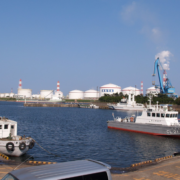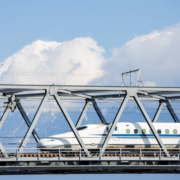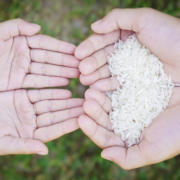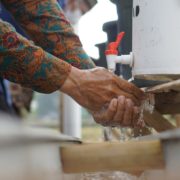
About KE Seetha Ram
KE Seetha Ram is a senior consulting specialist for capacity building and training projects at ADBI.Kashima City’s Great Transformation: Where Industry Meets Community

Kashima’s City's industrial transformation demonstrates the importance of government commitment, collaboration, and communication in driving regional development.
Unraveling the Health Risks of Climate Change

Only recently has the international community begun to recognize that the climate crisis represents a health emergency.
How Can Governments Support Electricity Distribution to Achieve Net Zero in Asia?

Japan and Indonesia point to positive aspects of government intervention in the electricity market instead of a completely free market.
Water security through effective wastewater management: Lessons from Japan’s public–private partnerships

Well-functioning wastewater management systems contribute to water security by improving resilience and welfare, but many countries are falling short of their wastewater management targets.
Asian lessons for reviving infrastructure investment as a driver of resilient development

In the post-pandemic era, the need for a timely rebound in infrastructure development is more urgent than ever.
Maximizing the value of water to end water scarcity in Asia

Water scarcity is a global issue that affects 40% of the world’s population
The triple burden of malnutrition in early childhood

Children from disadvantaged groups are particularly prone to developing nutrient deficiencies and growth problems.
Bringing lawyers back to the table for FIDIC contracts and dispute boards

A lack of legal advice during a project’s procurement process can result in unclear contractual terms that undermine the project and lead to costly and lengthy dispute resolution processes.
Land value capture mechanism provides opportunity for sustainable urbanization in developing Asia

Land value capture methods can fill budget gaps in infrastructure projects while promoting sustainable transit-oriented development.
How to meet Asia’s post-COVID-19 water and sanitation investment needs

Governments in developing Asia should adopt practical interventions to maximize the effectiveness of new and existing sources of funding for water and sanitation.


Search
Subscribe / Connect to Asia Pathways
Subjects
- Agriculture and natural resources
- Blog
- Capacity development
- Climate change
- Economics
- Education
- Energy
- Environment
- Finance sector development
- Gender
- Governance and public sector management
- Health
- Industry and trade
- Information and Communications Technology
- Infrastructure
- Miscellaneous
- Population
- Poverty
- Private sector development
- Regional cooperation and integration
- Sanitation
- Social development and protection
- Transport
- Uncategorized
- Urban development
- Video Blog
- Water
Recent Posts
- Transforming ASEAN: Advancing Regional Integration, Social Inclusion, and Environmental Sustainability
- Development of the Creative Economy in Asia and the Pacific
- Kashima City’s Great Transformation: Where Industry Meets Community
- Mechanization Driving the Future of Agriculture in Asia
- Natural Capital: Valuing Nature to Protect and Restore Ecosystem Services for Sustainable Development




Recent Comments